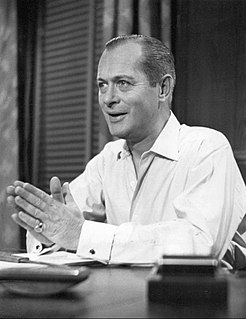A Quote by Hayao Miyazaki
I wish I was better at art. I love some of the great artists of the 19th century and, compared to them, I just feel I lack this technique that they had. They have so much skill.
Related Quotes
You had a flood of immigrants, millions of them, coming to this country. What brought them here? It was the hope for a better life for them and their children. And, in the main, they succeeded. It is hard to find any century in history, in which so large a number of people experience so great an improvement in the conditions of their life, in the opportunities open to them, as in the period of the 19th and early 20th century.
The 19th century Mormons, including some of my ancestors, were not eager to practice plural marriage. They followed the example of Brigham Young, who expressed his profound negative feelings when he first had this principle revealed to him. The Mormons of the 19th century who practiced plural marriage, male and female, did so because they felt it was a duty put upon them by God.
The Anglo-American tradition is much more linear than the European tradition. If you think about writers like Borges, Calvino, Perec or Marquez, they're not bound in the same sort of way. They don't come out of the classic 19th-century novel, which is where all the problems start. 19th-century novels are fabulous and we should all read them, but we shouldn't write them.
All great contemporary artists, schooled or not, are essentially self-taught and are de-skilling like crazy. I don't look for skill in art... skill has nothing to do with technical proficiency... I'm interested in people who rethink skill, who redefine or reimagine it: an engineer, say, who builds rockets from rocks.
People have asked me about the 19th century and how I knew so much about it. And the fact is I really grew up in the 19th century, because North Carolina in the 1950s, the early years of my childhood, was exactly synchronous with North Carolina in the 1850s. And I used every scrap of knowledge that I had.
I was really interested in 20th century communalism and alternative communities, the boom of communes in the 60s and 70s. That led me back to the 19th century. I was shocked to find what I would describe as far more utopian ideas in the 19th century than in the 20th century. Not only were the ideas so extreme, but surprising people were adopting them.
Obviously my own work comes from a conceptual art tradition, but I love the graffiti artists, and I feel spiritually closer to them than to most contemporary art; they make the city a free space of diverse voices and we shouldn't get all cynical about them just because Banksy made some money. I collaborate sometimes with Krae, who is an old school east London graffiti writer.
All of women's stories in the 19th century had either one of two endings: you either had the good Jane Austen marriage at the end and you were happy; or you had the terrible Henry James savage downfall because of your own hubris as a woman, or you've made some great error leading you down a path to ruin. One is the story of love that's successful and the other is the story usually of reckless love that goes terribly wrong that destroys the woman.
In the beginning of the 19th century, maybe forty percent of women and fifty percent of men could produce a signature, which meant that they'd had at least three years of education because it was in third grade that people started penmanship in the 19th century. And of course black people could get killed if they got caught teaching themselves to read in some parts of the country.






































